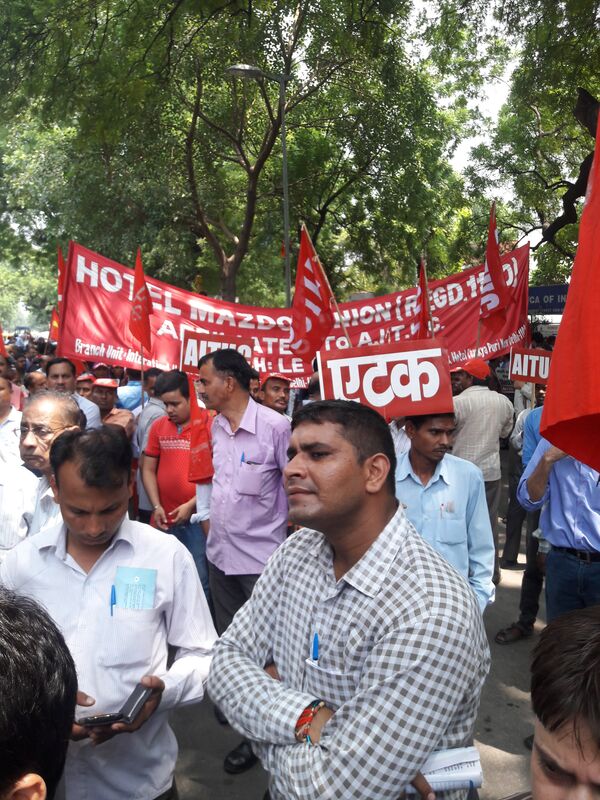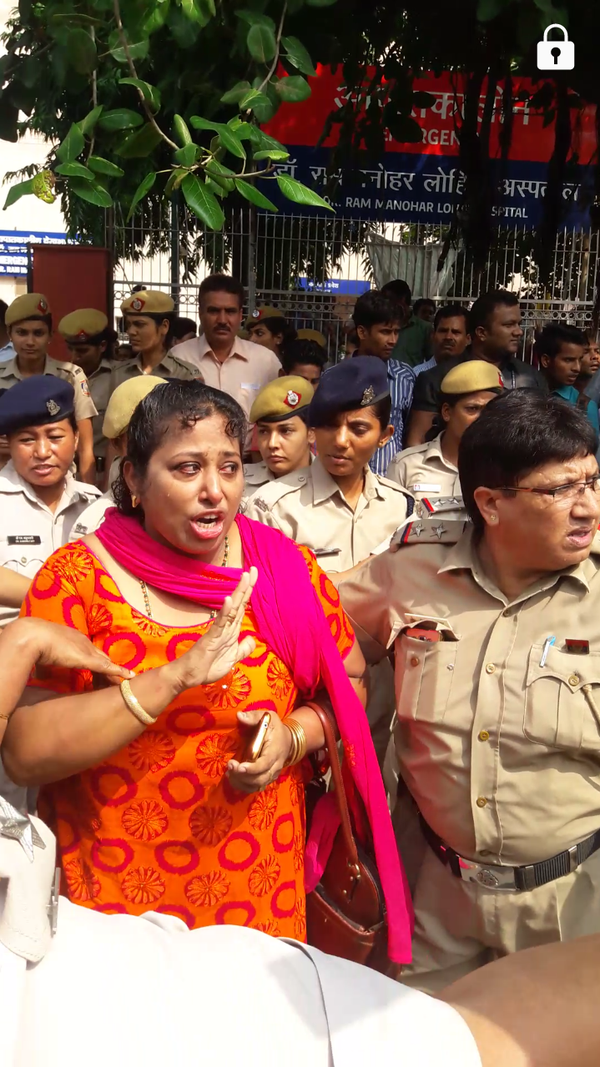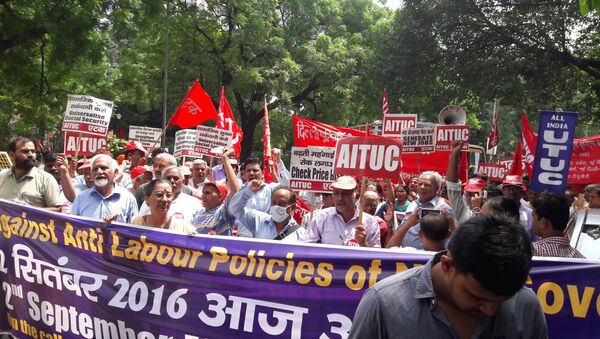More than 180 million Indian workers crippled basic services and industrial output after the government declined to pay attention demands. These included a statutory minimum wage of 270 dollars per month, universal social security and a ban on foreign investment in public sector institutions like banks, defense and railways.
#WorkersStrikeBack
— CPI (M) (@cpimspeak) 2 сентября 2016 г.
Kakinada sea port in Andhra Pradesh closed as workers participate in the strike.#BharatBandh pic.twitter.com/L4hRYcigrv
Coal mines, ports, steel and textile factories, electricity plants, and telecom buildings were closed, along with health services across the country as millions of nurses and doctors joined the strike. States like Karnataka, Andhra Pradesh, West Bengal, and Kerala were heavily affected by the transport strikes, causing delayed train routes.
#WorkersStrikeBack Rail Roko at Berhampur, Odissa.#BharatBandh pic.twitter.com/UbbxHmE1Sv
— CPI (M) (@cpimspeak) 2 сентября 2016 г.
Amarjeet Kaur, secretary of the All India Trade Union Congress, told Sputnik, “more than 180 million workers joined one of the biggest strikes in recent years. Millions workers had not joined work in manufacturing hubs like Manesar in Haryana and Chennai in Tamil Nadu. Some IT sectors employee who had been demanding to form union also supported this strike.”
சேலம் வேலைநிறுத்த மறியல் #Sept2StrikeHard #WorkersStrikeBack #BharatBandh pic.twitter.com/tJQ0ZFuaaY
— TNCPIM (@tncpim) 2 сентября 2016 г.
"With the all-India strike by central trade unions affecting trade, transport, key manufacturing facilities and banking services in Kerala, Karnataka, Tripura, Haryana and Uttar Pradesh, as well as other parts of the country, the loss to the economy is estimated at USD 2.7 bln," reads an assessment report released by industry body ASSOCHAM.

Narendra Modi won power in 2014 promising higher growth for the economy. Despite the government opening up defense, banking, pharma, aviation to foreign investments, only 130,000 people received employment while 13 million entered into the workforce every year. In last two years, the Indian government has written off 16.8 bln dollars in bank loans taken by big industrialists of the country.



